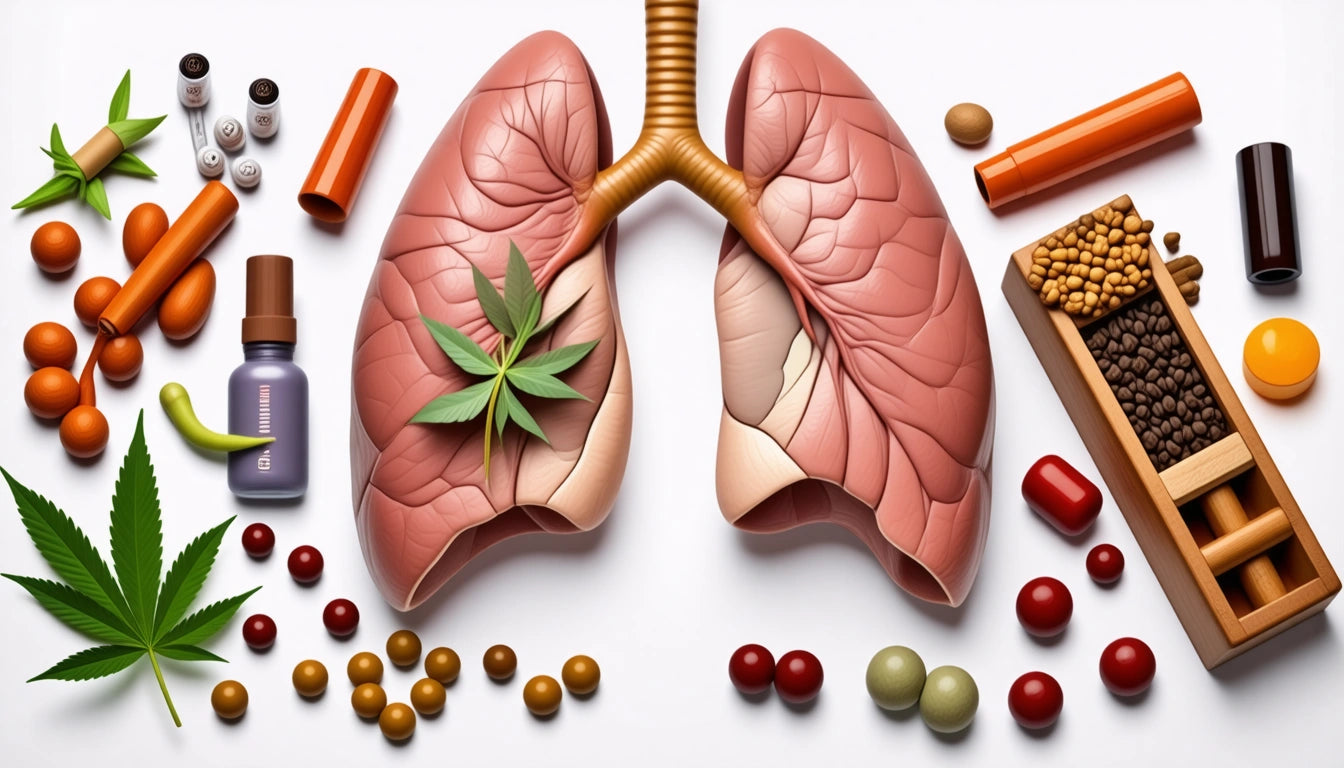Table of Contents
- Understanding Cannabis Concentrates for Medical Patients
- Types of Medical Concentrates and Their Benefits
- Consumption Methods for Medical Concentrates
- Dosing Considerations and Potency Awareness
- Safety and Storage Protocols for Medical Concentrates
- Patient Recommendations for Optimal Therapeutic Outcomes
Cannabis concentrates offer medical patients potent, fast-acting relief for various conditions. These products contain higher cannabinoid and terpene levels than flower, potentially providing more effective symptom management. However, their potency and consumption methods require special consideration for safe, effective use.
Understanding Cannabis Concentrates for Medical Patients
Cannabis concentrates are extracted products that isolate cannabinoids and terpenes from the plant material. For medical patients, these concentrated forms can deliver precise dosing and targeted effects. The extraction process removes excess plant material, creating products with cannabinoid concentrations typically ranging from 60% to over 90% THC or CBD, compared to flower's average 15-25%.
Medical patients often choose concentrates for their rapid onset and potent effects. These products may provide relief for conditions including chronic pain, muscle spasms, nausea, inflammation, and seizure disorders. The higher potency means patients can consume less material while achieving therapeutic effects.
Types of Medical Concentrates and Their Benefits
Solventless vs. Solvent-Based Extracts
Medical concentrates fall into two main categories: solventless and solvent-based. Understanding the differences between solvent and solventless concentrates helps patients make informed choices based on their health preferences.
Solventless extracts like rosin, bubble hash, and kief are produced without chemical solvents, appealing to patients concerned about residual chemicals. These products maintain a full spectrum of cannabinoids and terpenes, often preserving the plant's original therapeutic profile.
Solvent-based extracts utilize chemicals like butane, COâ‚‚, or ethanol to separate cannabinoids from plant material. Solvent extraction methods produce options like shatter, wax, budder, and oils. These products undergo purging processes to remove residual solvents, with properly manufactured products testing below safety thresholds.
Consistency and Composition Variations
Medical concentrates come in various consistencies, each with unique properties:
- Live Resin and Rosin: Preserve terpenes by using fresh or frozen plant material, potentially offering enhanced therapeutic effects through the entourage effect
- Budder and Crumble: Offer easier handling for patients with dexterity issues
- Distillates: Provide precise, isolated cannabinoids for targeted effects
- Full-Spectrum Extracts: Contain the complete range of cannabinoids and terpenes from the source plant
Comparing live resin, rosin, budder, and crumble can help patients understand which consistency might work best for their specific needs.
Consumption Methods for Medical Concentrates
Medical patients have several options for consuming concentrates, each affecting onset time, duration, and intensity of effects:
Inhalation Methods
Vaporization and dabbing provide quick relief, making them suitable for acute symptoms. Finding the best devices for dabbing or vaping concentrates is essential for effective treatment. Patients should consider temperature control features, as lower temperatures preserve terpenes and may reduce respiratory irritation.
For those new to dabbing, learning proper tools, temperatures, and techniques ensures safe and effective medication. Electronic devices with precise temperature control offer more consistent dosing than traditional methods.
Oral and Topical Applications
Concentrates can also be incorporated into edibles, tinctures, or topicals for patients who prefer non-inhalation methods. Learning how to use concentrates in edibles or vape pens provides alternatives for longer-lasting relief or localized application.
Dosing Considerations and Potency Awareness
The high potency of concentrates requires careful dosing, especially for new patients. Understanding how to read concentrate labels and potency information is crucial for safe medication.
Medical patients should:
- Start with minimal amounts (a rice grain-sized portion or less)
- Wait for full effects before consuming more
- Track effects in a symptom journal
- Consult with healthcare providers about dosing
Patients should be aware of the risks and benefits of high-THC concentrates, including potential tolerance development and withdrawal symptoms with prolonged use.
Safety and Storage Protocols for Medical Concentrates
Proper storage extends shelf life and maintains potency. Following storage tips to preserve flavor and potency ensures medication remains effective. Most concentrates should be kept in airtight, opaque containers away from heat, light, and moisture.
Safety considerations extend to packaging as well. According to regulatory standards for special packaging, medical cannabis products must utilize child-resistant containers that prevent accidental ingestion while remaining accessible to patients with limited dexterity.
Patient Recommendations for Optimal Therapeutic Outcomes
For medical patients seeking to incorporate concentrates into their treatment regimen:
- Consult with healthcare providers knowledgeable about cannabis
- Start with CBD-rich or balanced THC:CBD products if THC sensitivity is a concern
- Consider full-spectrum products for potential entourage effect benefits
- Invest in proper consumption tools for consistent dosing
- Keep detailed records of products, doses, and effects
- Store products properly in child-resistant containers
- Be aware of legal limitations in your jurisdiction
By understanding concentrate types, consumption methods, proper dosing, and safety protocols, medical patients can effectively incorporate these potent cannabis products into their treatment plans for potential symptom relief and improved quality of life.











Leave a comment
All comments are moderated before being published.
This site is protected by hCaptcha and the hCaptcha Privacy Policy and Terms of Service apply.